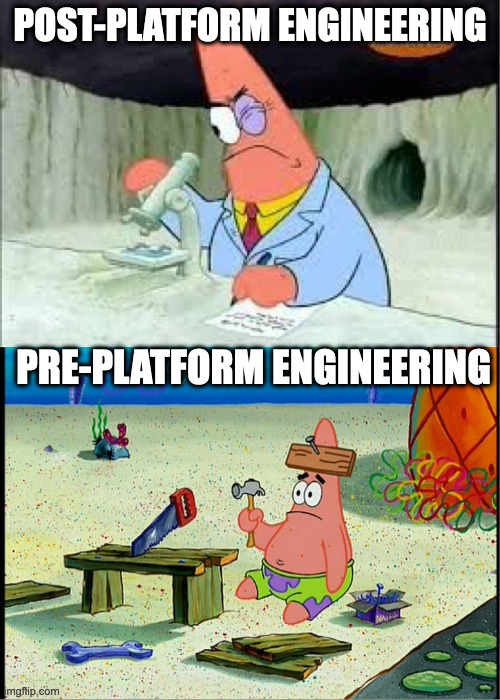1/9 So wtf actually is “Platform Engineering” you ask, and why do I think it's such a big deal?
Enter the definitive thread on platform engineering👇
#PlatformEngineering #DevOps
Enter the definitive thread on platform engineering👇
#PlatformEngineering #DevOps

2/9 🚀 So first, let’s do the what - basically, platform engineering (PE) is the discipline of designing and building toolchains and workflows that enable self-service capabilities for engineering organizations in the cloud-native era 🌩️
3/9 Platform engineers build an integrated product, often referred to as an “Internal Developer Platform” (IDP), covering the operational necessities of the entire lifecycle of an application💻 

4/9 An Internal Developer Platform (IDP) is the sum of all tech & tools that a PE team binds together to pave golden paths for developers helping operations structure their setup & enable developer self-service & drive standardization by design across the application lifecycle🔧
5/9 Think an internal platform that includes diff techs & tools, glued together in a way that lowers cognitive load on devs w/o abstracting away context & underlying tech.
PE done right means providing golden paths & paved roads that match the pref abstraction level of the dev
PE done right means providing golden paths & paved roads that match the pref abstraction level of the dev
6/9 And now the why? In the past, the "throw over the fence" workflow led to poor experiences on both sides of the fence. DevOps emerged as a solution to this problem.
As cloud native technology advanced, setups became more complex.
As cloud native technology advanced, setups became more complex.

7/9 But then we enter the last few years, with engineers having to master a buttload of different tools just to deploy and test a simple code change. 

8/9 The DevOps paradigm was championed as the way to achieve a high performing setup. Devs should be able to deploy & run their apps & services end to end.
For most, this is unrealistic. Antipatterns tend to emerge when trying to work true DevOps in a regular engineering org
For most, this is unrealistic. Antipatterns tend to emerge when trying to work true DevOps in a regular engineering org
9/9 And so, in comes PE. It brings with it a more efficient, more effective way of working that results in less cognitive load for devs.
If you're reading this, you're halfway there! If you want more, make sure to check the Slack & engage with other PE & platform nerds🔥
If you're reading this, you're halfway there! If you want more, make sure to check the Slack & engage with other PE & platform nerds🔥

• • •
Missing some Tweet in this thread? You can try to
force a refresh









